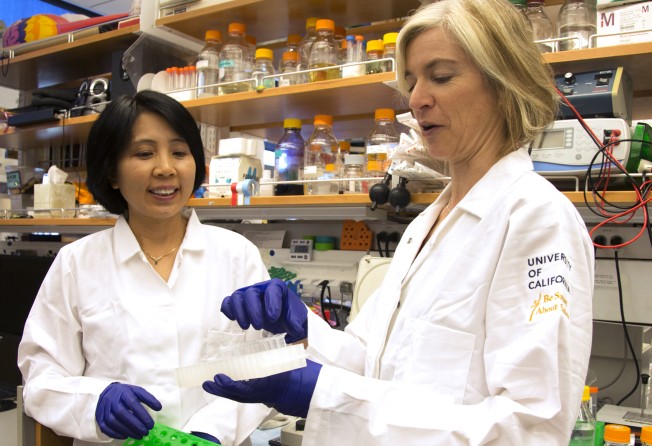The DNA dilemma: Opposition mounts to genetic modification of human embryos

A group of scientists and activists have called for a global ban on the use of new tools to edit the genes of human embryos, in a report issued ahead of a major international meeting in Washington to discuss the ethical and policy issues surrounding the technology.
The innovation that can strategically edit out specific stretches of DNA could ultimately lead to the genetic modification of children, and should be halted before it starts being used, scientists at the Centre for Genetics and Society and the activist group Friends of the Earth argued in their report, released Sunday.
“Once the process begins, there will be no going back. This is a line we must not cross,” said Pete Shanks, a consulting researcher with the Centre for Genetics and Society and author of the report.
Advocates say the technology, known as CRISPR/Cas9, could bring forward the day that scientists can prevent heritable diseases. Opponents worry about unknown effects on future generations and the temptation for future parents to pay for genetic enhancements such as greater intelligence or athletic ability.
CRISPR/Cas9 allows scientists to use enzymes to bind to a mutated gene, such as one associated with disease, and then replace or repair it.
The technique, if used to alter the DNA of human sperm, eggs, or embryos, holds the promise of eliminating a host of inherited diseases. But many scientists worry that this could produce unknown effects on future generations - since the changes are passed on to offspring, too.
Scientists note that the gene-editing techniques can also be used to alter the DNA of non-reproductive cells to repair diseased genes. The objections focus on so-called “germline editing” in which reproductive cells are modified.
The fear is that such editing could circumvent the normal process of evolution, and risk unforeseen consequences.
In May, the White House endorsed a ban on germline editing pending further study of the ethical issues.
The latest report was released on the eve of a summit convened Monday by the US National Academy of Sciences and its counterparts from China and the United Kingdom, following a series of events this year that have brought new urgency to the debate.
In March, a group of scientists led by one key developer of the CRISPR technique called for a voluntary research ban on the use of the technology for germline editing, reflecting fears about safety and eugenics. Shortly after that, a team of Chinese scientists reported carrying out the first experiment to alter the DNA of human embryos.
That news ignited an outcry from some scientists, though others defended the Chinese research as careful and safe since it used only non-viable human embryos.
On Monday, two scientists — Harvard University geneticist George Church and Jennifer Doudna, a molecular and cell biologist at the University of California, Berkeley — engaged in debate over the way forward in the pages of the journal Nature.
Doudna renewed her clarion call against genome editing in humans — a position that all parties to the conference (though neither the Chinese nor US governments) have voluntarily agreed to for now.
Church contended that regulatory mechanisms are up to the task of policing a cautious path forward on genome editing. Continuing the voluntary ban would “put a damper on the best medical research,” he added, driving human genome editing underground where, unregulated, it could run amok.
Both scientists appear to agree that CRISPR/Cas9 has made an outright ban on its use impractical. These easy-to-use, inexpensive and effective genome-editing methodologies have “changed the landscape of biology,” wrote Doudna.
Church argued that concern over “off-target effects” and the irreversibility of genome editing should not preclude its use on humans. Changes to a human’s germ line probably are reversible, he wrote. And, in any event, he added, “we already know that germ line editing is unlikely to cause dangerous, unforeseen mutations.”
Friends of the Earth, an environmental group, has also been a leading opponent of genetically modified foods, including a recently approved salmon that grows faster than its wild cousins. The Centre for Genetics and Society, founded in 2001, advocates for close oversight of human biotechnology.
Additional reporting by Tribune News Service